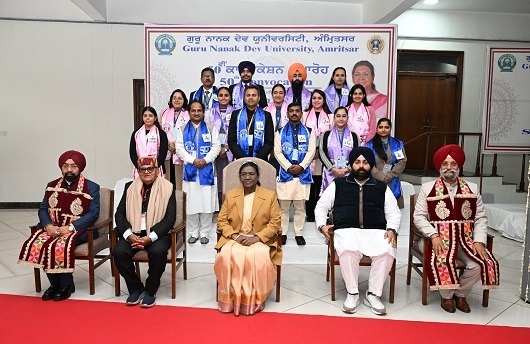
Authored article by: Dr.S.L.N.T.Srinivas
Member, All India Authors Group
NCCT: Ministry of Cooperation, Govt. of India
KARIMNAGAR, JUNE 12, 2025: Sanatana Dharma, often referred to as Hinduism in modern discourse, is more than a religion—it is a way of life rooted in eternal truths (Sanatana = eternal, Dharma = righteous conduct). It is the spiritual and ethical compass that has guided millions over millennia through its profound teachings on duty, values, harmony, and universal well-being. Unlike dogmatic systems, Sanatana Dharma is dynamic, inclusive, and experiential. It emphasizes not only belief but also righteous action (karma), pure thought (jnana), and selfless devotion (bhakti), weaving ethics into the very fabric of daily life.
Core Ethical Values of Sanatana Dharma
1.Dharma (Righteousness and Duty):
Dharma is the foundational ethical principle in Hindu philosophy. It refers to the duties and responsibilities appropriate to one’s role in society—whether as a student, householder, leader, or seeker. Dharma evolves with time and context but remains centered on truth, justice, compassion, and moral integrity. Upholding dharma leads to individual peace and collective harmony.
- Satya (Truth):
Truthfulness is considered a supreme virtue. The Mahabharata says, “There is no dharma higher than truth.” Speaking and living truthfully purifies one’s inner being and strengthens social trust. In personal and public life, Satya serves as the ethical backbone of interactions.
- Ahimsa (Non-violence):
Ahimsa is not merely the absence of physical violence—it represents deep compassion and empathy toward all living beings. Rooted in the belief that divinity resides in all, Ahimsa extends to thoughts, words, and actions. Mahatma Gandhi revitalized this principle, showing how ethical resistance could transform societies.
- Asteya (Non-stealing) and Aparigraha (Non-possessiveness):
Sanatana Dharma encourages simplicity and contentment. Asteya teaches not to take anything that is not rightfully ours, while Aparigraha guides one to avoid greed and attachment. These values foster equity, environmental balance, and inner peace.
- Daya (Compassion) and Dana (Charity):
Compassion is a reflection of divine love. Sanatana Dharma places a high emphasis on Daya (kindness toward others) and Dana (the spirit of giving). Acts of service and generosity are seen as sacred duties, not optional virtues. The scriptures declare, “Giving is the essence of dharma.”
Sanatana Dharma and the Four Purusharthas (Goals of Life)
Hindu ethical values are deeply integrated into the framework of the Purusharthas—the four aims of human life:
- Dharma – Righteous conduct and duty.
- Artha – Pursuit of material well-being through just means.
- Kama – Fulfillment of desires in a responsible, harmonious way.
- Moksha – Liberation through self-realization.
This integrated model ensures a balanced life—where spiritual growth, moral conduct, and material progress coexist, creating a fulfilling human experience.
Sanatana Dharma and Universalism
Sanatana Dharma is inclusive and pluralistic. It acknowledges that different individuals may follow different paths—Jnana (knowledge), Bhakti (devotion), Karma (action), or Raja (discipline)—and yet reach the same truth. This universal approach respects diversity while uniting humanity in ethical and spiritual pursuit.
Scriptures like the Bhagavad Gita, Upanishads, and Yoga Sutras emphasize the unity of all beings, the interdependence of life, and the need to live in harmony with nature. “Vasudhaiva Kutumbakam”—the world is one family—is a principle that flows from Sanatana Dharma’s ethical vision.
Relevance in Contemporary Times
In today’s fast-changing world, marked by materialism, conflict, and ecological imbalance, the ethical principles of Sanatana Dharma offer timeless guidance:
- In governance: Dharma-based leadership ensures justice and welfare for all.
- In education: Integrating values nurtures responsible, compassionate citizens.
- In the environment: Ahimsa and Aparigraha inspire ecological stewardship.
- In personal life: Ethical living fosters inner peace and social responsibility.
The revival of Sanatana Dharma’s values is crucial not only for personal well-being but also for global peace and sustainability.
Conclusion: Living Sanatana Dharma Today
Sanatana Dharma is not a religion of rigid dogma but of living principles. It is rooted in self-realization (Atma Jnana), social responsibility, and universal ethics. In its embrace of both spiritual depth and practical ethics, Sanatana Dharma remains a luminous path for humanity—teaching us to live with purpose, act with compassion, and coexist with all creation.
To walk the path of Sanatana Dharma is to align with truth, serve others selflessly, and contribute to a just, harmonious, and enlightened world.




